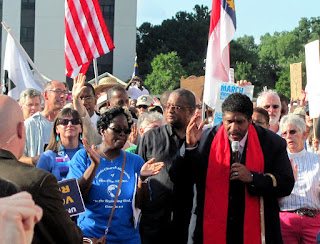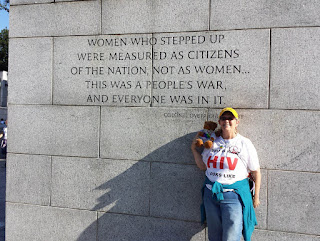It has been nearly 40 years since the HIV/AIDS epidemic began showing up across the United States, and after all this time, with the amazing level of resources and support available for those living with the disease, it became clear that there was little information publicly available concerning incarcerated populations. To that end, all 50 states’ and the District of Columbia’s respective Departments of Correction (DOCs) were contacted by the ADAP Advocacy Association and Community Access National Network (CANN) to inquire about their procedures for preparing inmates living with HIV for reentry into the general population. Not surprisingly, our research re-confirmed the disparities that exist in serving former inmates.
A few of the disparities are highlighted in the findings presented earlier this week in an infographic, which was made available by the ADAP Advocacy Association as part of its ongoing Correctional Health Project. The infographic can be downloaded from their website.
HIV is currently a disease that requires lifelong treatment that must be adhered to regularly in order to achieve and maintain Viral Suppression – when the Viral Load (the number of HIV virus cells active in the body) measures below 40 copies per milliliter (aka – Undetectable). With new data showing that Undetectable = Untransmittable, it is more important than ever for people living with HIV to have access to their medications in order to both stay healthy, and to prevent transmission of the disease to others. Former inmates deserve the same access to care and treatment as the general population, especially upon their discharge from prison.
We found that 31.3% of state DOCs fail to disclose the amount of meds inmates are provided upon release, making it difficult to track or accurately report the circumstances inmates face upon reentering the general population. In addition, 27.4% of states provide NO policy information on their reentry programs, whatsoever.
Rhode Island’s DOC has perhaps the most comprehensive HIV care program in the U.S. justice system, both during and post-incarceration. The state contracts with the state university to provide care throughout the inmate’s stay at state facilities and ensures that continuity of care continues by keeping inmates with their same providers after they leave (should they stay in the state). Additionally, inmates are provided with an excellent comprehensive reentry program that integrates the state’s Ryan White program and assists with the Medicaid application process. They also look into accessing HOPWA (Housing Opportunities for Persons With AIDS) to help provide housing if they are returning without a reliable home.
New Hampshire's DOC was unaware of the Ryan White Program. We were able to provide them information about the program and connect them with the state's Ryan White Director. NH is currently determining whether or not to incorporate Ryan White as part of their Reentry Program for inmates living with HIV/AIDS who do not qualify for Medicaid.
The latter story should be considered a success story for the Correctional Health Project – introducing state DOC’s to resources for reentering inmates living with HIV that can help them to maintain continuity of care between incarceration and reintegration into the general population is one of the primary goals. Additional resources will be made available on this project continues to unfold this year.
Read our related blogs on this topic:
- Improving Access to Care Among Formerly Incarcerated Populations with HIV/AIDS under the AIDS Drug Assistance Program (October 27, 2017)
- Linkages to Care During Post-Incarceration (July 5, 2017)
Disclaimer: Guest blogs do not necessarily reflect the views of the ADAP Advocacy Association, but rather they provide a neutral platform whereby the author serves to promote open, honest discussion about public health-related issues and updates.






